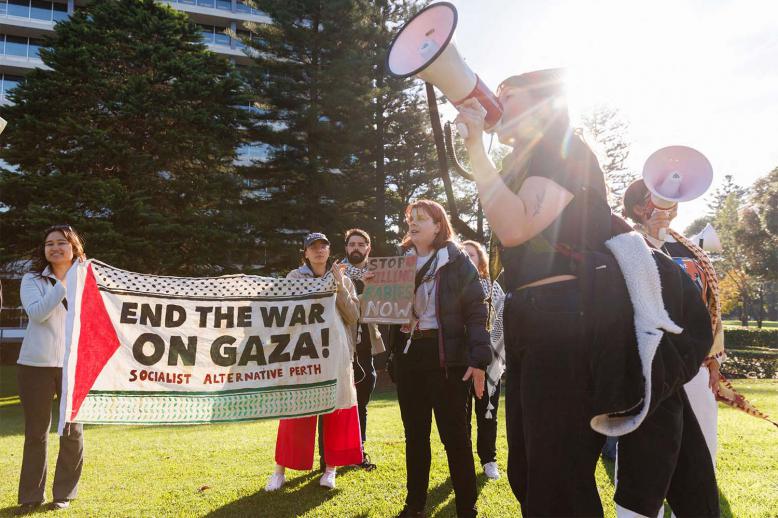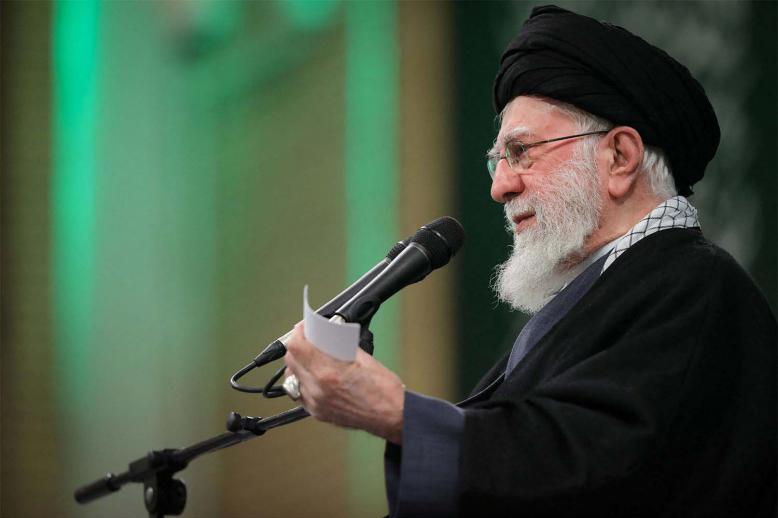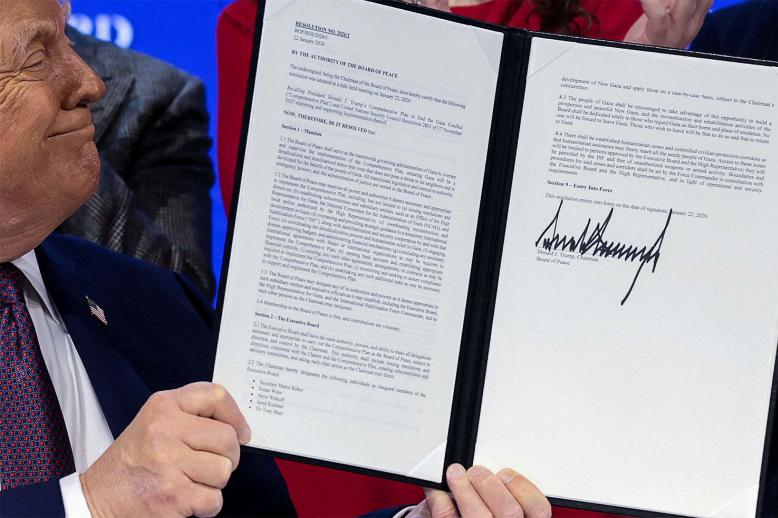Trump’s acquittal will further embolden Erdogan
Developments in Syria’s remaining combat zone in Idlib do not appear to be going the way Turkish President Recep Tayyip Erdogan desired them to go. The Syrian government troops’ offensive shows signs of strategic determination to re-establish full control of Syrian territory as one town after the other is taken over.
The safety of the so-called Turkish military observation posts remains at stake, some of which are surrounded by Syrian military units, leaving them at the mercy of Russia. This, coupled with the inevitable exodus of hundreds of thousands of local civilians piling up at the Turkish-Syrian border, points to a diplomatic cul-de-sac for Ankara, as well as a rising humanitarian disaster.
On the surface, Erdogan seems deeply in trouble given the deadlock over Ankara’s assertive moves in Libya, which have infuriated France above all others, and with Cyprus. The latter triggered countermoves in terms of sanctions from the European Union. All in all, the course of events points to a possible declaration of the bankruptcy of Turkish foreign policy in its neighbourhood.
Erdogan faces increasing challenges at home. Top figures of his Justice and Development Party (AKP) displayed defiance to accountability over the failure to send help following the powerful earthquake in Elazıg province in January.
More salt was rubbed on the wound when it was alleged that the death of 40 people as a result of an avalanche in Van province would not have happened if one of Erdogan’s top advisers had not insisted that her entourage take a country road to the remote Bahcesaray town.
In both cases AKP government officials shrugged and ignored all calls to clarify what went wrong. There was also the revelation that the Turkish Red Cross illegally transferred major funds to an Islamist foundation.
All of this leads to the interpretations that Turkey is at the edge of becoming ungovernable.
A battle seems to be looming on the horizon, giving signals that Erdogan’s late political allies, the so-called Eurasianist flank in Ankara, which he sees as the enemy of my enemy is my friend, Gulenists, have surfaced as a new challenge. Former army chief Ilker Basbug unleashed a war of words over “the political leg of the movement,” which he implies remains at the top echelons of the AKP.
Main opposition leader, Kemal Kilicdaroglu, seemed to inflict further pain by revealing at a party meeting his intention to expose all the top names of the AKP linked to the outlawed Gulen Movement. Erdogan, openly irritated, called on party officials to file lawsuits against Basbug, something that was quickly followed through. Therefore, a new battlefront was opened.
All this, seen from a higher altitude, means the spotlight is on Turkey’s strongman tramping on the watershed, if not trying to keep his head above the water. Yet, he seems unmoved. Erdogan is keen on his double-edged strategy: to keep advancing the cause to remain as the lead force for Ikhwanism, a form of political Islam, beyond borders while restructuring Ankara to make his power permanent.
Given the weaknesses of Turkey’s domestic opposition, the latter is the easy part but, given the quagmire in Idlib and the anger Erdogan caused in Moscow by shifting his low-key position vis-a-vis Russian President Vladimir Putin, as he signals a new offensive into Syrian soil, it will be interesting to watch how Erdogan manages Turkish-Russian relations.
Yet, his opponents at home and abroad may be facing a new trap of wishful thinking. Behind closed doors, key EU officials voiced hope that the Turkish-Russian equation will worsen, meaning Erdogan would turn to the European Union again.
This may be a long-term realistic viewpoint but it smells of cynicism. There is absolutely no prospect of reviving Turkey’s accession process into the European Union and no reason to expect Erdogan to turn 180 degrees to embrace the Copenhagen Criteria. Thus, what the European Union expects is a transactional relationship limited to the control of the refugee situation and to trade, based on the premise of accepting the oppressive status quo signed by Erdogan and his team.
There are also assessments from experts in the United States that Ankara understands it can’t simply leave NATO and altogether de-anchor towards Russia and Asia. There is some truth in that. In all its muscle-flexing, Turkey seeks a more autonomous role, in between the East and the West, and Washington may recalibrate its relations with Ankara, treading a fine line, by managing Erdogan.
Along with the Brexit decision signed and sealed, offering new prospects for a privileged partnership between Turkey and the United Kingdom, the acquittal of US President Donald Trump in his impeachment trial came as, to use a favourite phrase of his, God’s gift to Erdogan. Trump is the sole link tying fragile Turkish-American relations and Erdogan feels he did the right thing by placing all his eggs in one basket.
With a Trump victory in the November elections on the horizon, the more emboldened the White House will be, and so too will its friend in the Palace in Ankara.
Erdogan’s saga is not that shaken and stirred. In a world whose political scene is a fast-moving target, we may all be facing more powerful surprises.
Yavuz Baydar is a senior Turkish columnist, and news analyst. A founding member of the Platform for Independent Journalism (P24) in Istanbul, he has been reporting on Turkey and monitoring media issues since 1980. A European Press Prize Laureate in 2014, he is also the winner of Germany's 'Journalistenpreis' in 2018.
Copyright ©2020 The Arab Weekly







